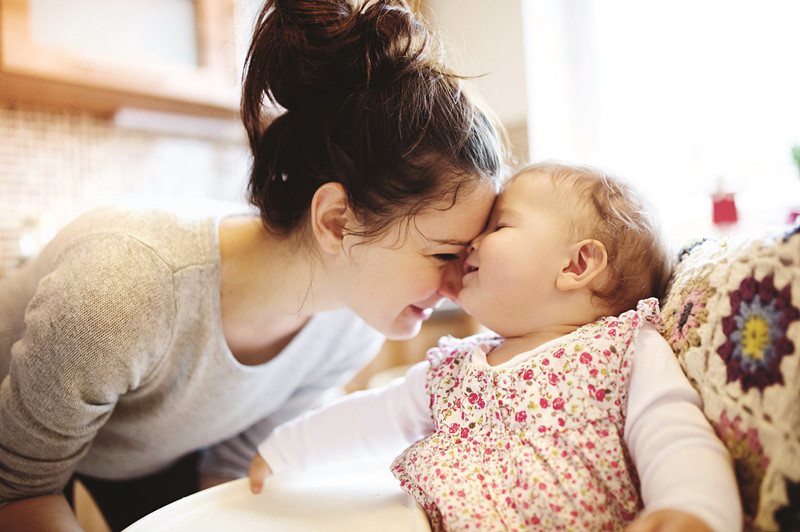31. Bring up your daughters with heartfelt joy, devout happiness, and a sense of religious spirit. In compensation of this, cherish the hope of Jannah from Allah Ta’ala.
32. Do not regard the female child as inferior to the male and do not give him preference over her. Expose the same love for both of them and conduct yourself impartially with both of them.
33. With enthusiasm and care, ensure that you give the girls their fixed share of a deceased’s estate. Also, be specific in your will about depriving the daughters of their share of the inheritance. Make sure you study books on this subject like Tarîqa-e-Wasiyyat and Ahkâm-e-Mayyit.
34. The ideal mother is she who instils the honour and esteem of her husband into the hearts of her children. She explains in various ways the status he commands as a leader and chief of the household. For instance, when something crops up, she responds by saying: “We’ll ask your father when he returns. We’ll do it if he agrees otherwise not because there is always good in obeying him. Allah Ta’ala is also pleased. Dad is the leader of the household. Obedience to the leader in permissible matters removes a number of calamities and this also attracts the mercy of Allah Ta’ala.” Etc. etc.
35. Similarly, the ideal mother is she who refrains from arguing and quarrelling with her husband in front of her children. In spite of the most detestable behaviour of her husband, she exercises patience in front of them and submits to the husband: “Yes, I was at fault, I am sorry. This won’t happen in the future.” Then when she is alone with him, she explains the proper situation to him and that she didn’t say anything at that time because of the children. Similarly, the ideal mother is she who refrains from giving the husband and children any sad news the moment they come home. She does not pounce on them with a volley of questions nor does she criticise them on any of their shortcomings the moment they step foot into the house. Instead, she greets them with Salâm, feeds them properly and then she says what has to be said.
36. The ideal mother is she who tries to maintain between two children an appropriate gap that allows the first one to complete breastfeeding and become a bit self-sufficient and also it affords the mother to overcome her weakness she suffered due to childbirth and breastfeeding. This gives her the opportunity to lighten her shoulders from the turmoil of a very young child. Now when she has no other valid Shar‘î excuse, she prepares herself for the next child so that each one of them can be brought up correctly and each one is awarded individual attention. This gap also offers her the opportunity to offer each child her individual attention and also it also allows her to recuperate after the weakness of childbirth, breastfeeding etc. Also, this gap ensures that the milk she is presently feeding is not adversely affected by another pregnancy. Therefore, it is recommended that the couple employ temporary measures of birth control and maintain a reasonable gap between their children. In fact, in view of the health of the mother or the child or on grounds of compelling reasons, after consulting with the Muftîs, she may even maintain a longer gap provided her intentions are not warped.
37. The ideal mother is she who honours her husband’s as well as her own mother in a manner pleasing unto Allah Ta’ala and this in turn engenders the same graciousness, Dînî spirit and honour amongst her children as well. She who happens to be a “coolness unto the eyes” of her mother and the husband’s mother, her children will also be a “coolness unto her eyes”.
38. The ideal mother is she who practises upon the advices proffered in this book and endeavours to instil these attributes into her Muslim sisters as well. She also encourages her Muslim sisters to read this book and books like Tohfa-e-Khawâtîn, Tohfa-e-Dulhan, Fadâil-e-A‘amâl, Fadâil-e-Sadaqât. She also makes Du‘â for the compiler of this book and the people who have assisted in its publication and also for those men and women engaged in the effort of Dîn.
39. Do not keep two daughters-in-law of conflicting temperament together. Ensure that you don’t get two of your sons married at the same time. If you have to do this, ensure that they stay separately. This arrangement encompasses a number of benefits and advantages to all parties concerned. For further information on this topic, read the book Tohfa-e-Dulhâ under the chapter “advices to the parents of the groom”.
40. When your daughter reaches the age of seven, bring her up in such a manner that she avoids shaking hands with men and she covers all her hair when she steps out of the home. Also, from an early age, develop the habit of making her wear long tops and (cotton) pants so that her legs remain covered at all times.
41. Together with the aforementioned strategies, make Du’aas for your children with ardent zeal and enthusiasm. Also abstain from the disobedience of Allah Ta’ala and restrain others from the same. It is hoped that Allah Ta’ala would not thrust aside the sincere Du’aas emanating from the depths of the parent’s hearts.




